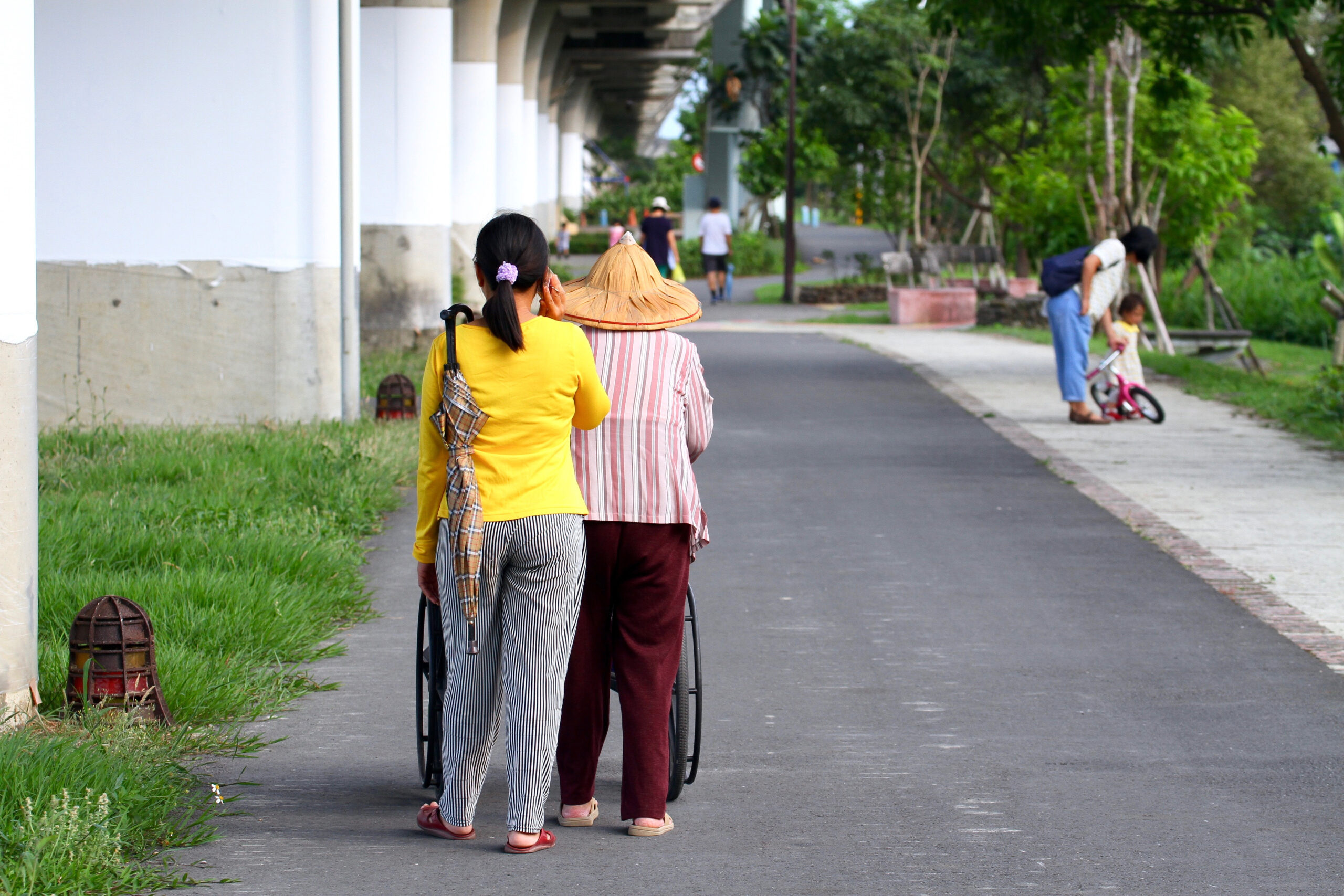Taiwan Health Promotion Intervention Study for Elders (THISCE)
THISCE included two complementary lifestyle intervention-based clinical trials for the prevention of physical and cognitive decline for older adults. The Efficacy Study compared effects of a lifestyle-based multidomain intervention with conventional health education. The Empowerment Study evaluated the benefit of an enhanced and further empowering intervention program. Study results from both trials show reduction in frailty and improved aspects of physical, functional and cognitive performance, particularly among participants aged 75 and older. Further investigation is recommended to confirm long-term effects.
Latest page update: 23 October, 2025
Aim of the project
This is a parallel prospective cluster-randomized trial.
- Assess the efficacy of a 12-month participatory community-group multidomain intervention against physical and cognitive decline among prefrail/frail community-dwelling older people (Efficacy Study)
- Evaluate the benefit of further empowering individual participants (Empowerment Study)
Location
Taipei, Taichung, Kaohsiung, Kinmen and Yilan
Local setting
The Efficacy Study enrolled participants from 40 clusters (community centers/neighborhoods with 500–1000 residents ≥65 years old) in five cities/counties across Taiwan: Taipei, Taichung, and Kaohsiung, Yilan, and Kinmen.
The Empowerment Study enrolled a separate cohort of participants, who did not overlap with those in the Efficacy Study, from another 14 clusters in Taipei, Taichung, and Kaohsiung.
Organizations involved
The study is coordinated by the Taipei Veterans General Hospital.
Principal Investigator (PI)
Liang-Kung Chen, Taipei Veterans General Hospital
Research team
Wei-Ju Lee, Taipei Veterans General Hospital, YuanShan branch
Chu-Sheng Lin, Taichung Veterans General Hospital
Ming-Yueh Chou, Kaohsiung Veterans General Hospital
Che-Chang Chan, Ministry of Health and Welfare Kinmen Hospital
Duration of the intervention
12 months
Project start date
2014
Project end date
2017
Current stage of the project
Complete
Number of study participants
- 1082 participants in the Efficacy study
- 440 participants in the Empowerment study
Target population
Community-dwelling older adults aged above 65 years with subjective memory impairment and prefrail/frail
Outcomes
Primary outcomes
- Changes in cognitive performance (MoCAadj)
- Changes in frailty status
Secondary outcomes
- Functional capacity
- Nutritional status
- Depressive symptoms
Intervention
The Efficacy Study compared the effect of multidomain intervention over 12 months with conventional health education.
The Empowerment Study compared implementing the same standard multidomain intervention as was used in the Efficacy Study for 6 months, vs. an enhanced version of that programme (months 6 to 12), with post-intervention follow-up at 9 months.
Domains
- Physical exercise
- Cognitive training
- Nutritional counselling
- Healthy nutrition education based on Taiwan HPA dietary guidelines
- For the second half of the Empowerment Study, the training sessions used new teaching materials, revised and simplified from the standard multidomain prototype, which addressed feedback from a needs-assessment survey in local communities. Participants were also given a pedometer and post-curriculum learning sheets to support goal setting and monitoring and additionally empowered by community leader involvement, group competitions, and individual motivation.
Results
Primary outcomes
Efficacy study
- No differences in change in frailty status when comparing intervention and control group.
- No difference in physical and cognitive function.
Empowerment study
- Improved cognitive performance at 9 months in the enhanced intervention group compared to the standard multidomain intervention
Secondary outcomes
Efficacy study
- At 6 months concentration improved when comparing intervention vs control group
- At 12 months, participants in the intervention group were less likely to report depressive symptoms and have malnutrition compared to the control group.
Empowerment study
- At 6 months, improved gait speed and physical activity in the enhanced intervention group compared to the standard multidomain intervention
- At 9 months, participants in the enhanced intervention group improved delayed recall, were less likely to report depressive symptoms and be malnourished compared to the standard multidomain intervention.
Sub-analysis
Both the standard and enhanced multidomain interventions significantly improved cognitive performance among ≥75-year-olds, with a sustained gain 3 months after the participant-empowered intervention ceased.
In the efficacy study
- Participants above the age of 75 in the intervention group had lower frailty scores, reported fewer depressive symptoms and improved delayed recall and cognition at 12 months compared to the control group.
In the empowerment study
- Participants above the age of 75 in the enhanced intervention had lower frailty scores at 6 months and improved their physical activity and functional ability at 6 and 9 months compared to the control group.
This study showed that participants ≥75 years old had even greater improvements in their physical and mental performance than younger ones, including significantly diminished prevalence of frailty during the intervention.
Acknowledgements
The Taiwan Health Promotion Intervention Study for Elders was funded by the Health Promotion Administration, Ministry of Health and Welfare, Taiwan (MOHW105-HPA-H-124-144101).

Results
Efficacy of multidomain interventions to improve physical frailty, depression and cognition: data from cluster-randomized controlled trials
(Journal of Cachexia, Sarcopenia and Muscle, 2020)
Efficacy of Multidomain Intervention Against Physio-cognitive Decline Syndrome: A Cluster-randomized Trial
(Archives of Gerontology and Geriatrics, 2021)
Roles of Baseline Intrinsic Capacity and its Subdomains on the Overall Efficacy of Multidomain Intervention in Promoting Healthy Aging among Community-Dwelling Older Adults: Analysis from a Nationwide Cluster-Randomized Controlled Trial
(The Journal of Prevention of Alzheimer’s disease, 2024)

